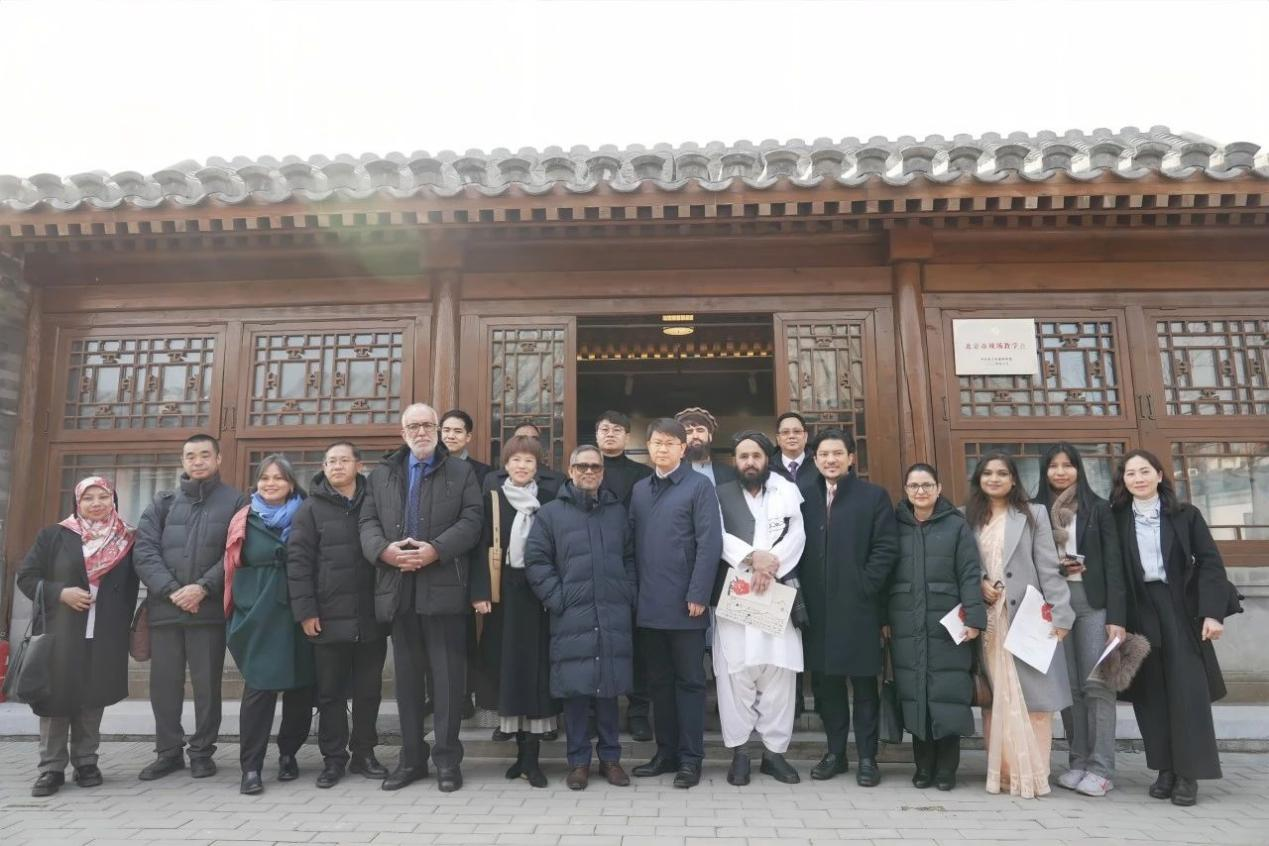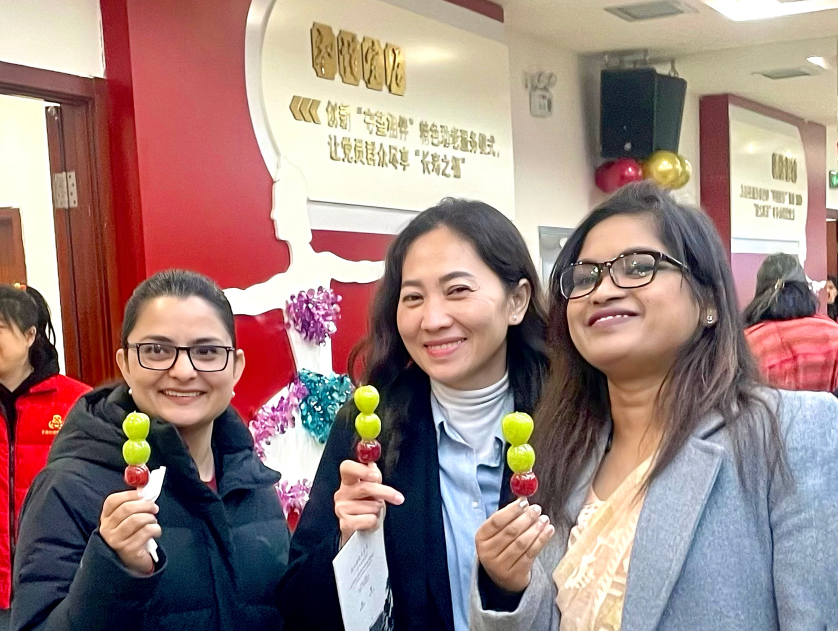On February 27, the Department of Asian Affairs of the Ministry of Foreign Affairs organized diplomats from neighboring Asian countries to visit the Jiaodaokou Sub-district in Dongcheng District, Beijing. A total of 17 diplomats from 15 countries, including the Maldives, Japan, Pakistan, Sri Lanka, Malaysia, Thailand and Afghanistan, toured the Memorial Hall of Qi Baishi’s Former Residence, No. 30 Yuer Hutong, Fuxiang Community Service Station and the Yuhe Ancient River Site. During the visit, diplomats learned about the renovation of old urban areas, grassroots governance, community services and the preservation of cultural relics.

Diplomats in China Visit No. 30 Yuer Hutong
The diplomats noted that this visit offered them a better understanding of the governance model of Beijing’s hutong. In particular, the grassroots experience of integrating historical context with modern life is worth learning from. “Every place is extremely intriguing, fascinating and unforgettable. I can’t think of a reason not to like it. Particularly, the field visit to understand local community governance is very insightful,” said Fazeel Najeeb, Ambassador of the Maldives to China. Nittaya, First Secretary of the Embassy of Laos in China, commended the public services and community governance in Dongcheng District. “I learned that the grassroots community provides care and support for the elderly and activity spaces for children, allowing them to engage in beneficial activities during their leisure time. These excellent measures have left a deep impression on me.” said Nittaya.

Diplomats in China Experience Tanghulu Making
[Photo by Yang Wenqin, a reporter from The Paper]
The diplomats also engaged in intangible cultural heritage folk activities such as the art of dragon-phoenix-flower-bird calligraphy, hairy monkey handicraft, Chinese knot weaving, and Tanghulu (or candied hawthorn sticks) making.
(Edited based on information from the Department of Asian Affairs of the Ministry of Foreign Affairs and The Paper)


